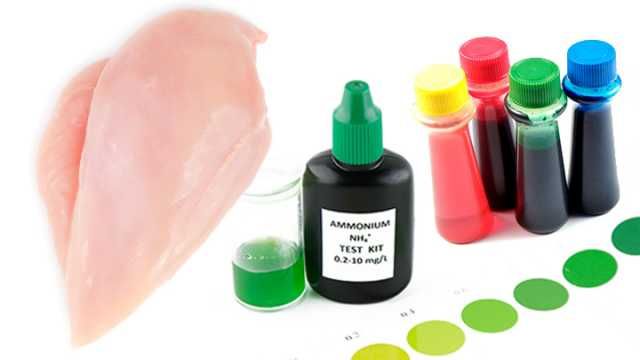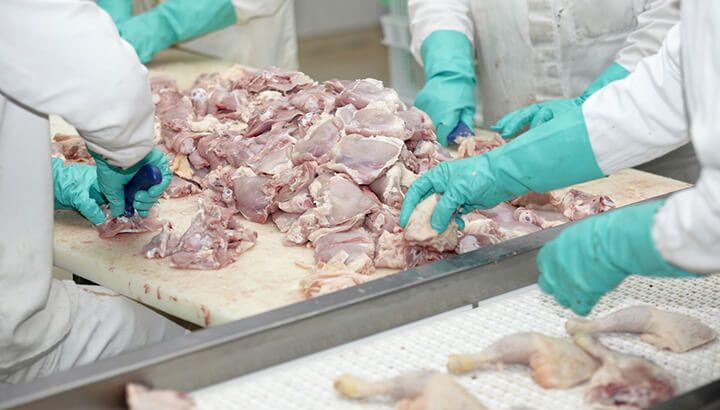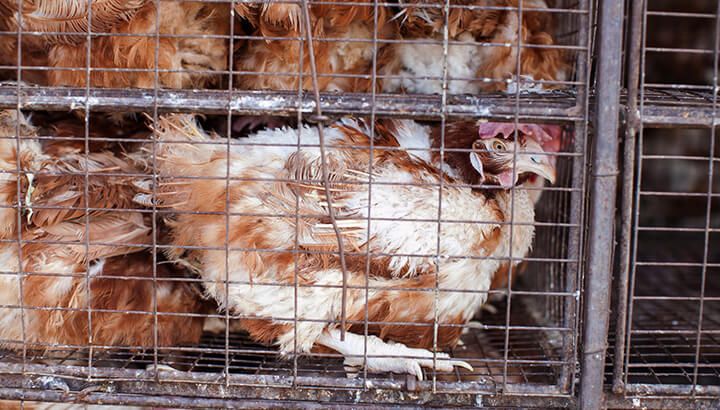
If you look at the ingredients list of many processed meat products, including hot dogs, bologna, chicken nuggets, chicken patties and certain types of sausage products, you’re very likely to find mechanically separated poultry. This is usually mechanically separated chicken, turkey or both. So, what exactly is this stuff and is eating it a risk to your health?
Mechanically separated chicken and turkey are pretty much the poultry equivalent of pink slime, a term used for lean finely textured beef. This beef product is made in a similar way to mechanically separated poultry, and to be honest, the process for making this stuff is pretty gross. To answer the question of whether or not this stuff is dangerous, let’s take a closer look at how it is made, and what is in it.
The process
To make mechanically separated poultry, manufacturers start with chicken or turkey carcasses that have had the regular cuts of meat (breasts, thighs, drumsticks, wings, etc.) removed. After these whole cuts are gone, the remainder of the chicken is put through machines that strip all of the rest of the meat and “edible tissue” off of the bone. Everything that is stripped is forced through a sieve using a high amount of pressure, resulting in a sort of meat paste.
This paste, or slurry, is then treated with a solution of ammonium hydroxide to destroy any bacteria. Then, as you can imagine this product does not taste too amazing, artificial flavoring agents and sometimes colors are added before the slurry finds its way into the processed meat products that many Americans enjoy way too often.
All parts of the chicken

While there is something commendable about using every part of the animal, the way that this is accomplished to make mechanically separated poultry is not exactly natural. As everything except the bones makes its way into the “poultry goo,” this can include veins, skin, cartilage and more. There are pretty rigorous safety standards in place for the production of pink slime, but it’s not a huge stretch to imagine that bone fragments and even feathers may find their way into the mix.
The ammonia bath
Onto the ammonia bath. First, I’ll say that the levels of ammonium hydroxide used to wash mechanically separated poultry (and mechanically separated beef) are considered not to be dangerous for human health. However, it’s still a pretty disturbing process for decontaminating food. In its pure form, ammonia is corrosive. If you are exposed to the undiluted stuff, it can lead to eye irritation and respiratory distress. If pure ammonia spills onto your skin, it can lead to burns, blindness or even death.
Now, you’re not going to be exposed to pure ammonia simply by eating a hot dog made with mechanically separated poultry, but the way this meat product is made may pose significant health risks to factory workers involved in its production. Safety protocols are in place, but accidents do happen.
Another issue with bathing pink slime goo in ammonium hydroxide is that concentrations may be too low to fully destroy salmonella, E. coli and other bacteria. If this is the case, potentially dangerous bacteria from these meat and cartilage fragments may not be fully destroyed. So, high concentrations of ammonia may be dangerous, and low concentrations may be dangerous, as well. A bit unsettling.
Artificial colors and flavors

Artificial colors and flavors are used in many mechanically separated poultry products. This should come as no surprise, as these types of additives are rampant in processed foods in general. Artificial colors and flavors are made with various chemicals, and they may lead to health problems, especially if they are consumed often and for a long period of time. If you see “natural flavors” on a label, that may not be much better, since manufacturers are allowed to put just about anything into these ingredients. In short, you probably don’t want them in your body.
Less digestible protein
Another issue with mechanically separated meats is that they may contain less digestible protein and more insoluble protein. This means you’re not getting as much nutrition from the protein that is there; your body may not be able to properly digest it. This makes sense — have any of you ever had a wicked stomachache after eating a hot dog or a plate of chicken nuggets? Me too. These products don’t exactly seem to digest very well at all.
Unhappy birds

Lastly, most of the poultry used to make mechanically separated poultry likely comes from birds raised on factory farms. These unfortunate animals are subjected to absolutely abhorrent conditions for their entire lives. It’s not an industry that any conscious, compassionate human being should support. The longer we keep eating animal products made with factory farm-raised animals, the longer these operations will exist. We can demand better conditions for animals, and we should.
Choosing the healthiest, happiest poultry
If you want to enjoy chicken and turkey that is natural, healthy and raised in humane conditions, choose whole cuts of meat (or whole birds) that are organic, free range and pastured. Since labels can be confusing, your best bet is to find a local poultry farmer who adheres to organic practices and gives their birds plenty of time and space to move around, peck outside and eat their natural diet. You may have to do a bit of research, but it’s worth it.
For the sake of your health, and for the sake of the animals, skip the mechanically separated stuff. It may be cheaper, but you’ll pay a price. One hot dog is highly unlikely to kill you, but if you eat this stuff in the long term, you may be seriously risking your health. Choose wisely.
— Tanya Mead

